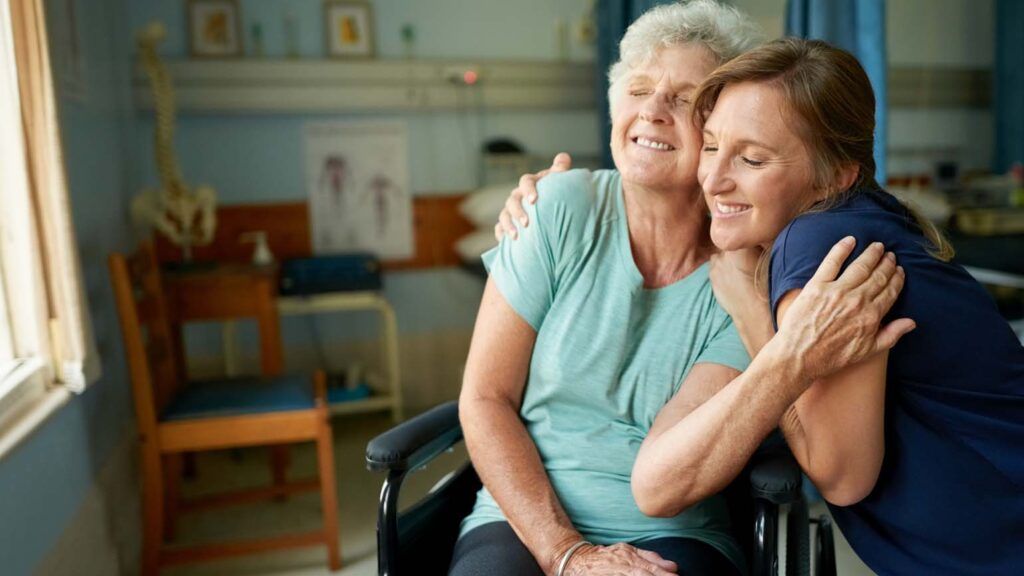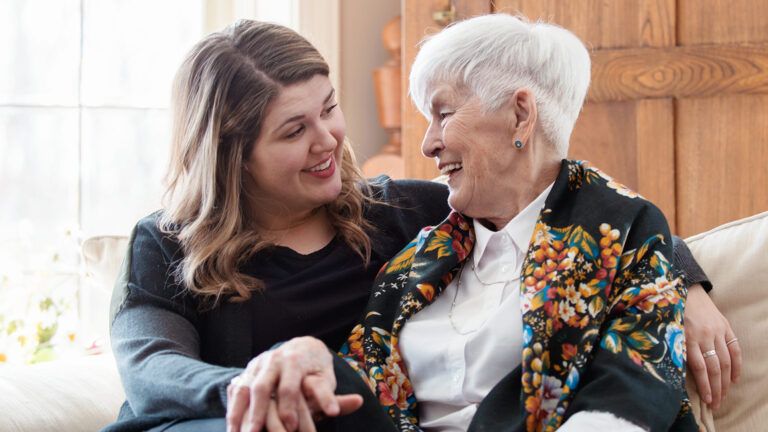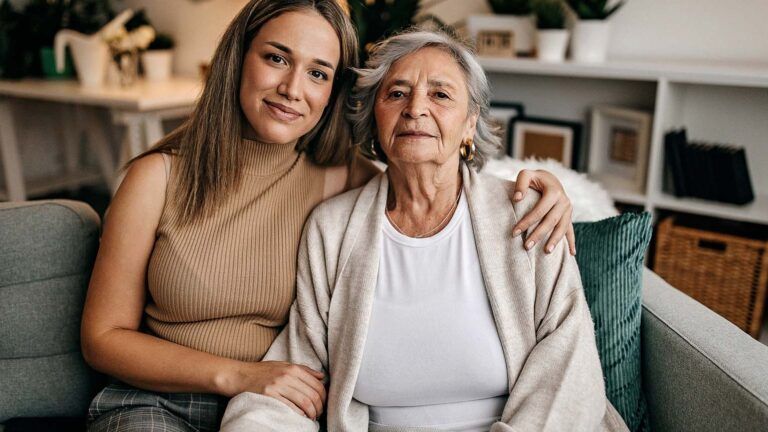Lauri Scharf, LSW, MSHS, is a Care Consultant & Master Trainer at Benjamin Rose Institute on Aging
Anytime your loved one faces a health issue, it’s bound to concern you as a caregiver. It may be a sudden or chronic illness, a behavioral change, a fall or another sort of accident. It can be particularly stressful to have to address such an issue late at night, as you need to access the best available care as soon as possible. But whether it’s day or night, it’s important to be armed with information so that you can make the most effective decisions. Should you go to a hospital ER or would a walk-in clinic or urgent care site be more appropriate? To better understand your options, here are some things to know about the sort of care each provides:
- Walk-In Clinics may be your best option when you can’t get in to your loved one’s physician right away and the issue requires that you be seen sooner rather than later. Health issues that fall into this category include ear pain, red eyes, sore throat and painful urination. It’s important to remember, though, that walk-in clinics are not intended to be a stand-in for the primary care doctor.
- Urgent Care may be the preferable option when your loved one undergoes a health change that causes you additional concern or that has presented gradually. Examples include a sudden rash, moderate flu-like symptoms, dehydration and small cuts.
- Emergency Rooms provide immediate care for such issues as chest pains, breathing difficulties, fainting, alterations in mental status including delirium or coma, seizures, or weakness or numbness on one side of the body.
If you’re not sure how to handle a particular situation, however, do not hesitate to call 911 for help.
Any ER experience is likely to cause both you and your loved one stress. It doesn’t matter whether you got there by rescue squad or drove yourselves. But planning ahead for any sort of hospital visit is a good way to minimize stress.
Tips to Make Your Loved One’s Hospital Visit Less Stressful
During downtime at your loved one’s bedside, look for ways to make the environment more peaceful. As you wait for medical staff to see you, consider some ways to up the comfort level. Maybe the ceiling lights could be dimmed. Could you draw the curtain to the cubicle in order to block out staff activity and lessen agitation and confusion? Could you ask for a nice, soft blanket? In addition to providing warmth, a blanket could help comfort your loved one, particularly if he or she has changed into a hospital gown.
It’s up to you to take the lead in communicating with hospital personnel when your loved one has trouble doing so. Make sure to answer questions and convey information calmly. But it’s important whenever possible to let your loved one respond to questions and otherwise communicate. Doing so ensures that your loved one remains engaged in his or her own treatment.
For additional support, you may want to ask someone else in your family or a close friend to go to the hospital with you. This individual can be at your loved one’s side when you have to deal with paperwork, speak privately to the doctor or take meal and restroom breaks.
Your loved one may have a scheduled hospital appointment for diagnostic testing or a routine or new procedure. Before you go to the hospital, it helps to know:
- What the test or procedure is called
- How much time it will require
- Whether your loved one should continue to take his or her regular prescriptions prior to the test or procedure
- Which foods and/or beverages are allowed in advance of the appointment
- How much recovery time may be necessary
- Whether your loved one will be discharged right away, be held for observation, or be admitted overnight
- Discharge instructions including follow-up appointments with medical personnel
For either a planned or unplanned visit, it’s important to keep a go-to bag or backpack on hand with:
- A warm sweater or light blanket
- Snacks (as long as they’re cleared by staff) and bottled water
- Earbuds and calming music to make the environment more peaceful
- A comfortable change of clothing and adult briefs and wipes
- Sanitizing lotion/spray and extra masks
- A list of regular prescriptions
- Contact information for the primary care and specialty physicians, and others in the family
- An additional phone charger
- Pertinent documents including insurance, power of attorney and living wills
Symptoms of moderate and severe dementia often lead to longer hospital stays, so put your go-to bag together with that in mind.
You never know when an unscheduled hospital visit will be necessary for your loved one. But there are good ways to reduce risks, including:
- Home safety inspections to eliminate both indoor and outdoor fall hazards
- Physical therapy and other treatments to improve mobility
- Regular needs assessments to keep track of changes, including possible declines
As a caregiver, you can also identify the need for additional in-home care and utilize these resources. Since you have such a central role in your loved one’s life, it’s vital to take care of your own physical, emotional and mental health. Reaching out to community resources including WeCare…. Because You Do through Benjamin Rose Institute on Aging can help you to identify potential concerns, prioritize current needs and help in future planning.





